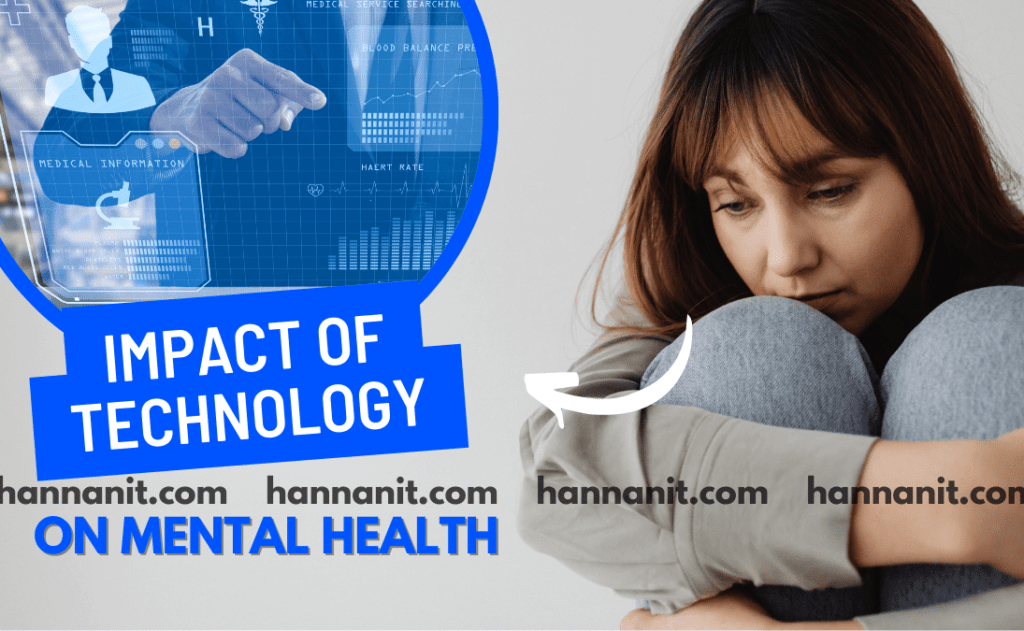Technology has revolutionized almost every aspect of our lives, from the way we communicate and work to the way we shop and learn. However, the impact of technology on mental health is a topic that has only recently gained attention. While technology has the potential to provide access to mental health resources and support, it also poses a range of risks such as digital addiction, cyberbullying, and information overload. In this article, we will explore the opportunities and risks of technology in mental health, as well as the challenges and limitations of its use, and the ethical and social considerations involved.
The Impact of Technology on Mental Health
Definition of Technology and Mental Health
Technology refers to any electronic or digital tool, device, or platform that helps us to perform tasks or solve problems. Mental health, on the other hand, encompasses our emotional, psychological, and social well-being. It affects how we think, feel, and behave, and determines how we handle stress, relate to others, and make choices.
Overview of Technology’s Impact on Mental Health
The impact of technology on mental health is complex and multifaceted. While it offers new opportunities for self-expression, learning, and social interaction, it also brings new challenges such as digital addiction, cyberbullying, and information overload.
Importance of Addressing Technology’s Effect on Mental Health
Given the pervasive influence of technology in our daily lives, it is crucial to understand its effect on mental health and to develop strategies for promoting its positive impact while mitigating its negative consequences.
Positive Impact of Technology on Mental Health
Access to Mental Health Resources and Support
Technology has made it easier than ever before to access mental health resources and support. Online platforms such as therapy apps, counseling websites, and crisis hotlines provide users with instant access to mental health professionals and peer support.
Digital Therapeutics and Self-Care Apps
Digital therapeutics and self-care apps are another area of technological innovation that has shown promise in improving mental health outcomes. These apps offer a range of tools and resources for managing symptoms, tracking progress, and learning coping skills.
Telemedicine and Remote Therapy
Telemedicine and remote therapy have emerged as viable alternatives to traditional in-person mental health care. These technologies allow individuals to receive treatment and support from the comfort of their own homes, reducing barriers to access and increasing convenience.
Online Communities and Peer Support
The internet has created new opportunities for individuals to connect with others who share their experiences and struggles. Online communities and peer support networks offer a sense of belonging and validation that can be difficult to find in face-to-face interactions.
Negative Impact of Technology on Mental Health
Digital Addiction and Overuse
Excessive use of technology has been linked to a range of negative mental health outcomes, including addiction, anxiety, and depression. The constant barrage of notifications, messages, and alerts can create a sense of overwhelm and distract individuals from important tasks and relationships.
Cyberbullying and Social Media Pressures
Social media platforms have given rise to new forms of bullying and harassment, including cyberbullying and online shaming. These experiences can have a profound negative impact on mental health, leading to feelings of shame, isolation, and worthlessness.
Information Overload and Anxiety
The vast amount of information available on the internet can also contribute to feelings of anxiety and overwhelm. Individuals may feel pressured to keep up with the latest news and trends, leading to a constant sense of information overload.
Disconnect and Isolation
Ironically, despite the increased connectivity that technology provides, it can also contribute to feelings of disconnection and isolation. Social media platforms, for example, can create a false sense of connection while eroding the quality of face-to-face relationships.
Challenges and Limitations of Technology in Mental Health
Lack of Regulation and Quality Control
One of the main challenges facing the use of technology in mental health is the lack of regulation and quality control. As the market for mental health apps and services expands, it can be difficult to determine which products are effective and safe.
Limited Access and Resources in Underserved Communities
Another challenge is the limited access to technology and mental health resources in underserved communities. Individuals from low-income backgrounds or rural areas may not have the same access to internet connectivity or mental health professionals as those in urban areas.
Privacy and Security Concerns
Privacy and security concerns are also a major challenge facing the use of technology in mental health. The collection and use of sensitive personal data by technology companies and mental health professionals raises questions about consent, confidentiality, and data protection.
Ethical Considerations in the Use of Artificial Intelligence and Big Data
The use of artificial intelligence and big data in mental health care raises ethical considerations around issues of bias, accountability, and transparency. These technologies have the potential to improve mental health outcomes, but their use must be carefully monitored to ensure that they do not perpetuate existing inequalities or harm vulnerable populations.
Future of Technology in Mental Health
Advancements in AI and Machine Learning
Advancements in artificial intelligence and machine learning are likely to play an increasingly important role in the future of mental health care. These technologies have the potential to improve diagnostic accuracy, personalize treatment plans, and identify risk factors for mental health disorders.
Integration with Traditional Mental Health Care
The integration of technology with traditional mental health care is another area of potential growth. As telemedicine and remote therapy become more widely accepted, mental health professionals may begin to incorporate digital therapeutics and self-care apps into their treatment plans.
Expansion of Digital Therapeutics
Digital therapeutics are likely to continue to expand in popularity and effectiveness. These apps and tools provide individuals with accessible and affordable options for managing their mental health symptoms and improving their overall well-being.
Development of Personalized Mental Health Care
The development of personalized mental health care is also an exciting prospect. By leveraging big data and artificial intelligence, mental health professionals may be able to develop treatment plans that are tailored to each individual’s unique needs and circumstances.
Ethical and Social Considerations
Importance of Privacy, Confidentiality, and Informed Consent
The importance of privacy, confidentiality, and informed consent cannot be overstated when it comes to the use of technology in mental health care. Individuals must be fully informed about how their data will be collected, used, and protected, and must have the opportunity to provide their consent or opt out of participation.
Accessibility and Equity in Mental Health Care
Accessibility and equity in mental health care must also be considered when implementing technology solutions. Efforts must be made to ensure that underserved communities have access to the same quality and range of mental health services as those in more privileged areas.
Responsibility of Tech Companies and Mental Health Professionals
Tech companies and mental health professionals have a responsibility to prioritize the well-being of their users and patients. This includes developing and adhering to ethical standards for data collection and use, as well as being transparent about potential risks and limitations of technology in mental health care.
Potential Impact on Stigma and Discrimination
Finally, the potential impact of technology on stigma and discrimination must be considered. While technology has the potential to reduce stigma and increase awareness around mental health issues, it can also perpetuate harmful stereotypes and exacerbate existing inequalities.
Conclusion
The impact of technology on mental health is a complex and multifaceted issue that requires careful consideration and evaluation. While technology offers many opportunities for improving mental health outcomes, it also poses a range of risks and challenges that must be addressed. By prioritizing ethical and social considerations and developing solutions that are accessible, equitable, and effective, we can harness the potential of technology to promote positive mental health outcomes for individuals and communities. It is crucial that we remain vigilant and continue to monitor the impact of technology on mental health, and adapt our strategies and approaches as necessary.
FAQs
Technology has the potential to be both helpful and harmful for mental health, depending on how it is used. While it can provide access to mental health resources and support, it can also contribute to issues such as digital addiction, cyberbullying, and information overload.
Technology can be used to improve mental health outcomes by providing access to mental health resources and support, developing digital therapeutics and self-care apps, offering telemedicine and remote therapy, and creating online communities and peer support networks.
Some challenges facing the use of technology in mental health care include the lack of regulation and quality control, limited access and resources in underserved communities, privacy and security concerns, and ethical considerations in the use of artificial intelligence and big data.
We can ensure that technology is used ethically and responsibly in mental health care by prioritizing privacy, confidentiality, and informed consent, ensuring accessibility and equity in mental health care, prioritizing the well-being of users and patients, and considering the potential impact of technology on stigma and discrimination.
The future of technology in mental health care is likely to include advancements in artificial intelligence and machine learning, integration with traditional mental health care, expansion of digital therapeutics, and the development of personalized mental health care. However, it is important to carefully consider the potential risks and challenges of technology in mental health care, and to prioritize ethical and social considerations in its use.



